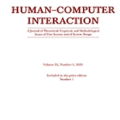Extended Reality (XR) technology - such as virtual and augmented reality - is now widely used in Human Computer Interaction (HCI), social science and psychology experimentation. However, these experiments are predominantly deployed in-lab with a co-present researcher. Remote experiments, without co-present researchers, have not flourished, despite the success of remote approaches for non-XR investigations. This paper summarises findings from a 30-item survey of 46 XR researchers to understand perceived limitations and benefits of remote XR experimentation. Our thematic analysis identifies concerns common with non-XR remote research, such as participant recruitment, as well as XR-specific issues, including safety and hardware variability. We identify potential positive affordances of XR technology, including leveraging data collection functionalities builtin to HMDs (e.g. hand, gaze tracking) and the portability and reproducibility of an experimental setting. We suggest that XR technology could be conceptualised as an interactive technology and a capable data-collection device suited for remote experimentation.
翻译:扩展现实(XR)技术(如虚拟和扩展现实)现在被广泛用于人类计算机互动、社会科学和心理学实验,然而,这些实验主要在实验室内与共同在场的研究人员一起进行,尽管在非XR调查的远程方法中取得了成功,但是没有共同在场的研究人员的远程实验没有蓬勃发展。本文总结了对46 XR研究人员进行的30项调查的结果,以了解远程XR实验的局限性和益处。我们的专题分析指出了与非XR远程研究共同关注的问题,如参与者的招聘以及XR具体问题,包括安全和硬件变异性。我们确定了XR技术的潜在有利条件,包括利用HMD(手、视像跟踪)的数据收集功能,以及实验环境的可移动性和可复制性。我们建议XR技术可以被概念化为一种互动技术和适合远程实验的能数据收集装置。我们建议,XR技术可以被概念化为一种互动技术和一种适合远程实验的数据收集装置。




